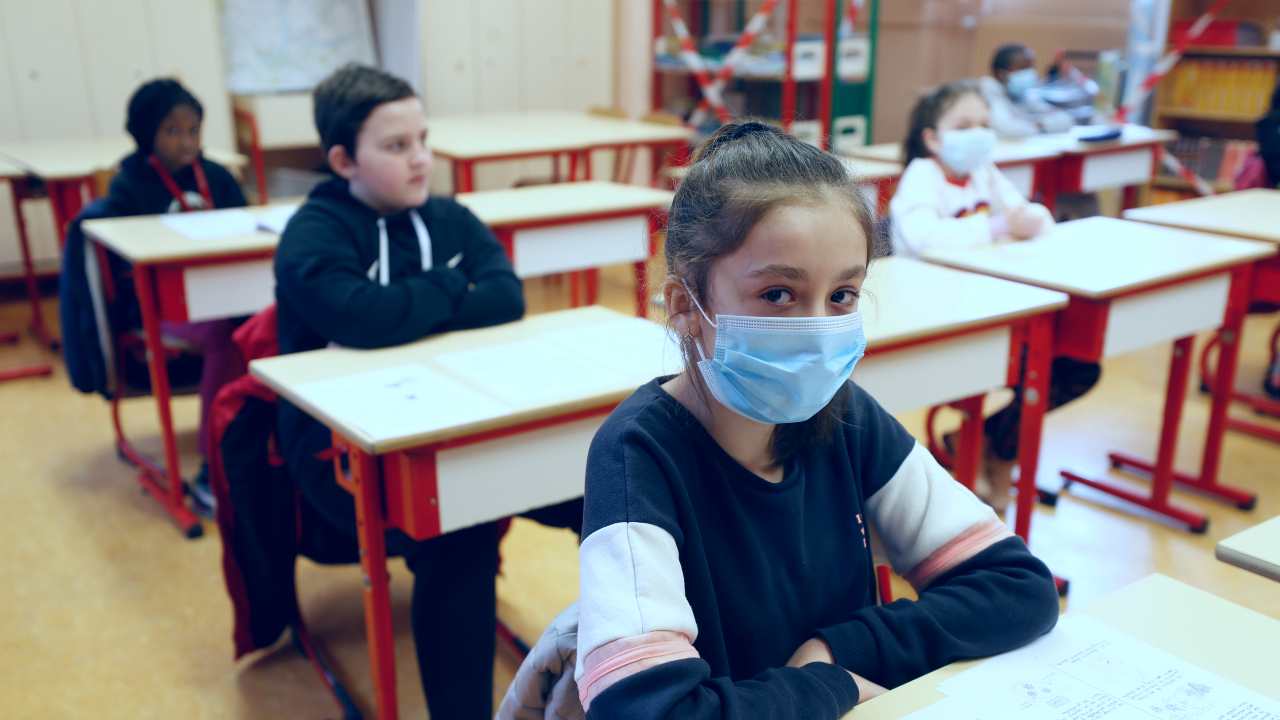Childrens’ immune programs make fewer antibodies in opposition to SARS-CoV-2 virus, COVID-19 examine finds
The findings might have implications in testing, undermining outcomes from checks that search for antibodies to sure proteins of the virus.
Youngsters contaminated with the coronavirus produce weaker antibodies and fewer kinds of them than adults do, suggesting they clear their an infection a lot quicker, in line with a brand new examine revealed Thursday.
produce weaker antibodies and fewer kinds of them than adults do, suggesting they clear their an infection a lot quicker, in line with a brand new examine revealed Thursday.
Different research have urged that a very robust immune response could also be guilty in individuals who get severely ailing or die from COVID-19 . A weaker immune response in youngsters might paradoxically point out that they vanquish the virus earlier than it has had an opportunity to wreak havoc within the physique, and should assist clarify why youngsters are largely spared extreme signs of COVID, the illness attributable to the coronavirus
. A weaker immune response in youngsters might paradoxically point out that they vanquish the virus earlier than it has had an opportunity to wreak havoc within the physique, and should assist clarify why youngsters are largely spared extreme signs of COVID, the illness attributable to the coronavirus . It might additionally present why they’re much less prone to unfold the virus to others.
. It might additionally present why they’re much less prone to unfold the virus to others.
“They could be infectious for a shorter time,” mentioned Donna Farber, an immunologist at Columbia College in New York who led the examine reported within the journal Nature Immunology.
Having weaker and fewer antibodies doesn’t imply that youngsters can be extra vulnerable to re-infections, different specialists mentioned.
“You don’t really want an enormous, overly strong immune response to take care of protections over some time frame,” mentioned Deepta Bhattacharya, an immunologist on the College of Arizona in Tucson. “I don’t know that I’d be particularly anxious that children have a little bit bit decrease antibody response.”
The examine checked out youngsters’s antibody ranges at a single time limit, and was too small to offer insights into how the degrees might range with age. Nevertheless it might pose questions for sure antibody checks which may be lacking youngsters who’ve been contaminated.
Farber and her colleagues analyzed antibodies to the coronavirus in 4 teams of sufferers: 19 grownup convalescent plasma donors who had recovered from COVID with out being hospitalized; 13 adults hospitalized with acute respiratory misery syndrome ensuing from extreme COVID; 16 youngsters hospitalized with multi-system inflammatory syndrome, the uncommon situation affecting some contaminated youngsters; and 31 contaminated youngsters who didn’t have the syndrome. About half of this final group of youngsters had no signs in any respect.
in 4 teams of sufferers: 19 grownup convalescent plasma donors who had recovered from COVID with out being hospitalized; 13 adults hospitalized with acute respiratory misery syndrome ensuing from extreme COVID; 16 youngsters hospitalized with multi-system inflammatory syndrome, the uncommon situation affecting some contaminated youngsters; and 31 contaminated youngsters who didn’t have the syndrome. About half of this final group of youngsters had no signs in any respect.
People in every group had antibodies, in keeping with different research exhibiting that the overwhelming majority of individuals contaminated with the coronavirus mount a sturdy immune response.
mount a sturdy immune response.
“This additional emphasizes that this viral an infection in itself, and the immune response to this virus, shouldn’t be that completely different from what we might anticipate” from any virus, mentioned Petter Brodin, an immunologist at Karolinska Institutet in Stockholm.
However the vary of antibodies differed between youngsters and adults. The youngsters made primarily one sort of antibody, referred to as IgG, that acknowledges the spike protein on the floor of the virus. Adults, in contrast, made a number of kinds of antibodies to the spike and different viral proteins, and these antibodies have been extra highly effective at neutralizing the virus.
Youngsters had “much less of a protecting response, however in addition they had much less of a breadth of an antibody response,” Farber mentioned. “It’s as a result of these children are simply not getting contaminated as severely.”
Neither group of youngsters had antibodies to a viral protein referred to as the nucleocapsid, or N, that’s entangled with the genetic materials of the virus. As a result of this protein is discovered inside the virus and never on its floor, the immune system would solely see it and make antibodies to it if the virus have been broadly disseminated within the physique, she mentioned.
“You don’t actually see any of that within the youngsters, and that means that there’s actually a lowered an infection course if these children are getting contaminated,” she defined.
The discovering might undermine the outcomes from checks designed to select up antibodies to the N protein of the virus. Many antibody checks, together with these made by Abbott and Roche and supplied by Quest Diagnostics and LabCorp, are particular to the N antibodies and so might miss youngsters who’ve efficiently cleared the virus. “That’s completely an fascinating implication of that discovering,” Brodin mentioned.
Decrease ranges of virus within the physique would additionally clarify why youngsters appear typically to transmit the virus much less effectively than adults do.
However specialists urged some warning in decoding the outcomes as a result of they characterize samples taken from individuals at a single time limit.
Samples from the extra severely affected youngsters and adults have been collected inside 24 to 36 hours of being admitted or intubated for respiratory failure; these from youngsters with gentle or no signs have been banked after medical procedures.
The kind of antibodies produced by the physique varies over the time course of an an infection. This was a limitation of this examine as a result of the researchers might have been evaluating individuals at completely different factors of their an infection, Brodin mentioned. “You threat evaluating apples and oranges.”
Different specialists cautioned that the examine was too small to attract conclusions about how the immune response might range in youngsters of various ages. The youngsters within the examine ranged in age from 3 to 18 years, with a median age of 11. However some research have urged that youngsters could also be simply as a lot in danger from the coronavirus as adults.
as adults.
“It’s essential to know what occurs in youngsters,” to know the character of their sickness, but additionally how they contribute to unfold of the virus locally, mentioned Dr. Maria L. Gennaro, an immunologist at Rutgers College. However “to try to stratify by age, it’s a little bit little bit of a stretch within the evaluation,” she mentioned.
The researchers have been additionally not in a position to clarify why youngsters have a extra restricted antibody response.
Having fewer kinds of antibodies might appear to be a foul factor, however “having a ton of antibody isn’t essentially a marker of a great factor,” mentioned Bhattacharya. “It normally signifies that one thing went mistaken early within the response.”
A minimum of one different examine has urged that youngsters have a strong inborn immune system, meant to fight the various new pathogens they encounter, and that this primary line of protection might clear the an infection early with no need to depend on later antibodies.
One other chance is that the youngsters have some safety — within the type of immune cells referred to as reminiscence T cells — from earlier encounters with widespread chilly coronavirus es.
es.
“Is all of it innate? Or might there truly be some preexisting reminiscence?” Bhattacharya mentioned. “I feel these are each doable.”
Apoorva Mandavilli. c.2020 The New York Instances Firm
#Childrens #immune #programs #antibodies #SARSCoV2 #virus #COVID19 #examine #finds











